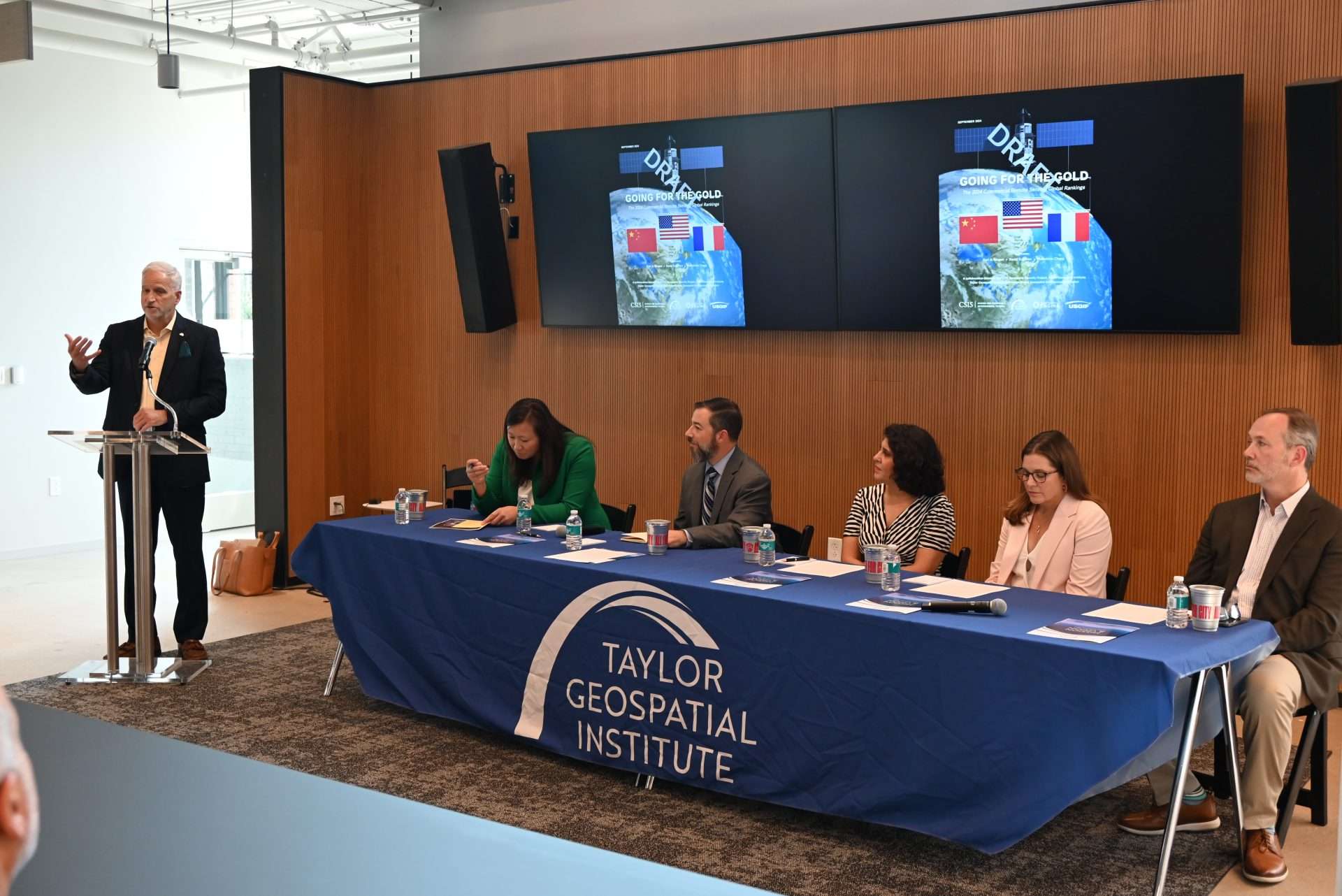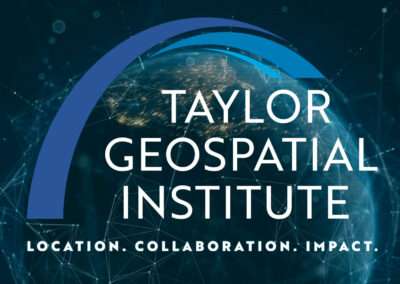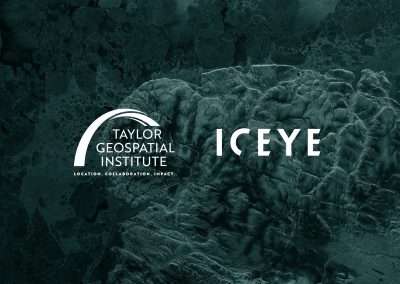
St. Louis, MO – The Taylor Geospatial Institute (TGI), in collaboration with the Center for Strategic and International Studies (CSIS), Taylor Geospatial Engine, and the United States Geospatial Intelligence Foundation (USGIF), announces a sneak peek of, “The 2024 Commercial Remote Sensing Global Rankings,” an assessment of the world’s leading commercial space-based remote sensing systems.
Drawing inspiration from the US National Geospatial-Intelligence Agency’s (NGA) 2021 product comparing the performance of commercial satellite imaging systems, “The 2024 Commercial Remote Sensing Global Rankings,” provides an independent assessment of worldwide commercial space-based remote sensing systems. Channeling the Olympics, the project produces a “Top 3” ranking of systems across several categories of performance. The 2024 assessment centers largely on advances in US and Chinese remote sensing systems. Of 11 performance categories, Chinese systems garner the gold medal in five areas and US systems in four areas, with Finland and South Korea each securing a gold medal.
The report provides a detailed discussion of the trends in each category, the stakes involved should any one country dominate the commercial remote sensing market, and recommended actions for the US government to keep US companies at the leading-edge of technology and globally competitive.
“Excellence in commercial remote sensing attracts innovators and businesses to the US space economy and enables diplomacy through transparency that helps strengthen our ties with partners and allies,” said David Gauthier, senior associate (non-resident) at CSIS and co-author of the report, at a roundtable discussion giving a sneak peek at the final medal count in St. Louis on September 11, 2024. Gauthier also explained the methodology employed in the analysis.
TGI executive director Nadine Alameh, Ph.D., highlighted the crucial role that collaboration played in the project. “This collaboration exemplifies how complementary non-profits can collaborate to offer an impartial, comprehensive, yet accessible view of a complex competitive market,” she said. “Our goal is for the Commercial Remote Sensing Global Rankings to provide a dependable foundation for stakeholders in government and industry to develop strategies in the areas of technology, investment, partnerships, and policy.”
Co-author Kari A. Bingen, director of the Aerospace Security Project at CSIS, agreed. “This was an opportunity to bring together four world-class institutions that specialize in international security, space, and geospatial sciences and innovation to assess an important aspect of US technological, security, and economic competitiveness. We want the results to spur policy conversations about the importance of US leadership, the state of global competition, and how to keep the US private sector at the leading edge of innovation and atop the global marketplace.”
Jen Marcus, executive director of Taylor Geospatial Engine, echoed the hope that this analysis engenders substantive conversations, as did the 2021 study. “The assessment of the commercial remote sensing market that was released a few years ago spurred such excellent discussion across industry and government—and it had a measurable impact in the policy realm as well,” she said. “We are thrilled to contribute to the latest research and very much look forward to the discussions that will follow.”
“Generating thought-provoking debate about the role of commercial remote sensing industry capabilities in global competition is critical to driving continued innovation, integration, and investment for the future,” said Gary Dunow, executive vice president of the United States Geospatial Intelligence Foundation. “Alongside our partners, we hope this material informs not only US policymakers but also our allies as we collectively pursue a competitive edge in all aspects of remote sensing.”
The full report and rankings will be released on October 1, 2024, at CSIS in Washington, DC. For more information on that event, please visit the CSIS website.
About Taylor Geospatial Institute
TGI is passionate about fueling geospatial science and technology to create the next generation of solutions and policies that the whole world will depend on for sustainability and growth.
The TGI consortium includes Saint Louis University, the Donald Danforth Plant Science Center, Harris-Stowe State University, University of Illinois Urbana-Champaign, Missouri University of Science & Technology, University of Missouri-Columbia, University of Missouri-St. Louis, and Washington University in St. Louis. Collectively, these institutions cover geospatial research from ocean depths to outer space.
For more information, visit taylorgeospatial.org.
About USGIF
United States Geospatial Intelligence Foundation (USGIF) is a nonprofit 501(c)(3) educational foundation dedicated to promoting the geospatial intelligence tradecraft and developing a stronger GEOINT community among government, industry, academia, professional organizations, and individuals who develop and apply GEOINT to address global security challenges. USGIF achieves its mission via its strategic pillars:
Build the Community | Advance the Tradecraft | Accelerate Innovation.
For more information, please visit www.USGIF.org and follow USGIF on LinkedIn and Twitter.
About Taylor Geospatial Engine
The Taylor Geospatial Engine was established with a founding investment from Andrew C. Taylor. This funding by the Taylor family is a philanthropic investment in geospatial innovation and its potential to expand the industry, increase investment capital in the region, and impact complex global challenges.
For more information, please visit tgengine.org.
About CSIS
The Center for Strategic and International Studies (CSIS) is a bipartisan, nonprofit policy research organization dedicated to advancing practical ideas to address the world’s greatest challenges. CSIS’s purpose is to define the future of national security. We are guided by a distinct set of values—nonpartisanship, independent thought, innovative thinking, cross-disciplinary scholarship, integrity and professionalism, and talent development.
For more information, please visit csis.org.



